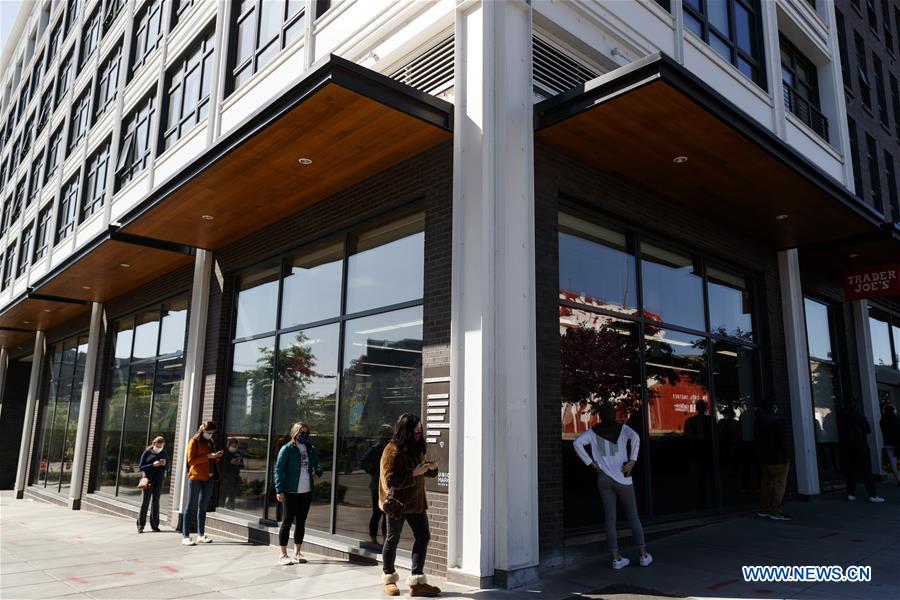US consumer prices post largest decline since 2008 amid pandemic
 0 Comment(s)
0 Comment(s) Print
Print E-mail Xinhua, May 13, 2020
E-mail Xinhua, May 13, 2020

U.S. consumer prices fell by the most since the 2008 financial crisis in April as energy prices plunged and efforts to contain the COVID-19 pandemic weighed heavily on consumer demand.
The consumer price index (CPI) fell 0.8 percent in April from the prior month, the largest monthly decline since December 2008, the Labor Department reported on Tuesday.
While a 20.6-percent decline in the gasoline index was the largest contributor to the monthly decline of the CPI, the indexes for apparel, motor vehicle insurance, airline fares, and lodging away from home all fell sharply as well.
Excluding the volatile food and energy categories, the so-called core prices fell 0.4 percent in April, the largest monthly decline in the history of the series, which dates to 1957, according to the department.
"While the pandemic has created temporary spikes in demand for some items and disturbed some supply chains, the main price story in April was the overwhelming decline in consumer demand, evident in the prices for apparel, autos, airline tickets and hotel rooms," Sarah House, senior economist at Wells Fargo Securities, wrote Tuesday in a note.
"We expect inflation to slow further in coming months, though we do not expect outright deflation," House said, adding the reported gradual rise in airline traffic and hotel occupancy rates suggests demand is starting to come back online as the economy begins to re-open.
Diane Swonk, chief economist at Grant Thornton, a major accounting firm, said the latest CPI data confirm Federal Reserve concerns that inflation will further decelerate in response to COVID-19.
"This will be one of many reasons the Fed feels pressure to do more rather than less over the summer," Swonk wrote Tuesday in an analysis.






Go to Forum >>0 Comment(s)